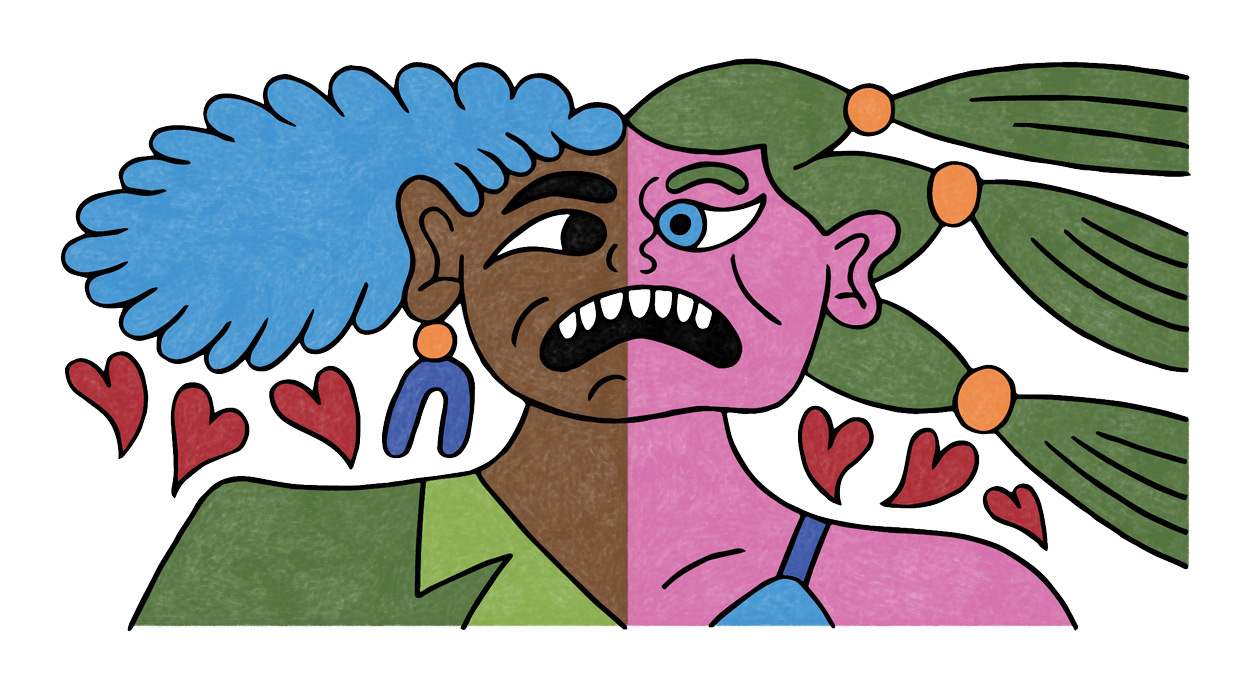

Now you hear more about the issue of romantic love, and also, and fortunately, critically. In the end, we have begun to analyze in depth the issue of affective sexual relations, the great expectations we make about what should be and should be a relationship of couple, the concept we have built of what good love should be.
The myth of romantic love causes a lot of damage. First of all, because it's never how we imagined it, or how it appears in the movies, and of course, because that frustrates us, with the sense of failure that accompanies it, with the side damage of the misinterpretation that we do of the value of ourselves, etc. It is true that things are changing, or we have the feeling of it, but those of us who work with adolescents can prove it well, not as quickly as we would have wished. Things have changed, yes, but not so much.
But the issue goes further. The problem is not that partner relationships are not as they've ever told us, or at least not only that, but, even if they can be, they're not healthy. It means that the centrality of the institutional partner is the one to be questioned, and not only that relatively toxic way of being in a couple. Yes, it is necessary to change the way of relating to the couple, but also that the couple is always the basis of all social and institutional relations. Otherwise, we are addressing the issue from the surface.
How is it possible that in the event of the mother's death she has a three- or four-day leave for not having to go to work and a two-week holiday period for marriage?
I don't know if you've ever realized, but it's a shame that the large number of values, prestige, privileges and mastery that partner institution has in our society. How is it possible, for example, to have a three- or four-day maternity leave or a mother's death so that she does not have to go to work and a two-week marriage holiday? Many more examples of the administrative area could be given, but I think this is particularly significant, it illustrates its underlying meaning and ideology. To me, saying what they want is a scandal.
And on a personal level, similar. The main social life is built on the form of a couple, we present ourselves as partners in the social sphere, the couple is the relationship we take care of the most, the one we desire the most when we do not have. The couple is the center of our life, the link we have given it the labelling of supremacy, and that, of course, to the detriment of other relationships.
Because what about friendship should be, in my opinion, institutional and social, the link we should care about the most, because the network of friends is the one that in most cases guarantees us support, which stays in time. Also at the base of good affective sexual relations, a good friend condition.
But we're far from that. A good friend has no recognition, we have no days of leave to care for him, we cannot leave the inheritance, for example, under the same conditions as if he left a couple. And personally, how many times we can't go down to the background to our friend(s) when we found a novel or novel, forgetting the affective network for one person.
I want to end these words with Brigitte Vasallo's sense of polimicity. Polymers are those that do not prioritize a single link. People who care at the same level of the (sexual)affective network. I see a great revolution there.